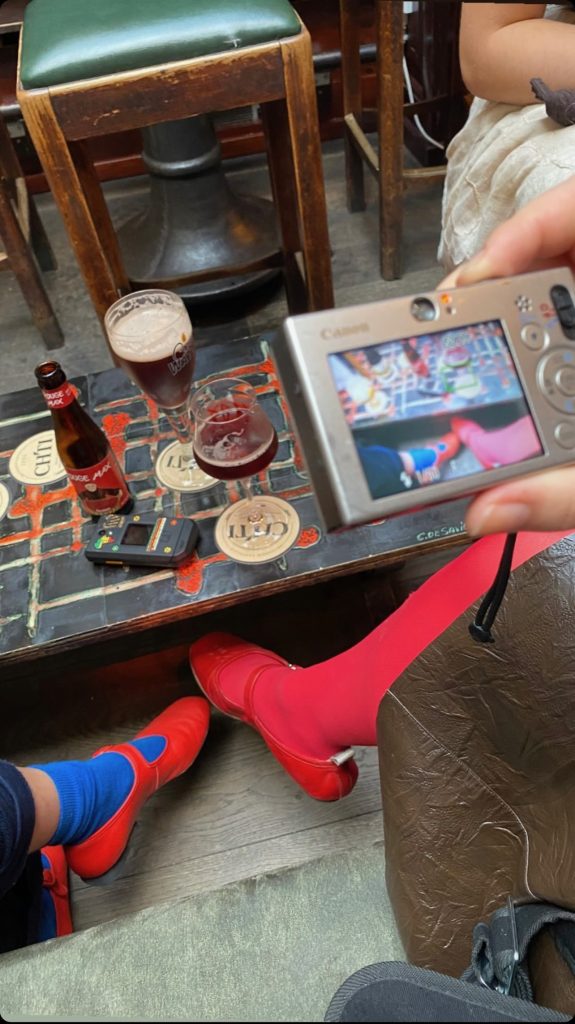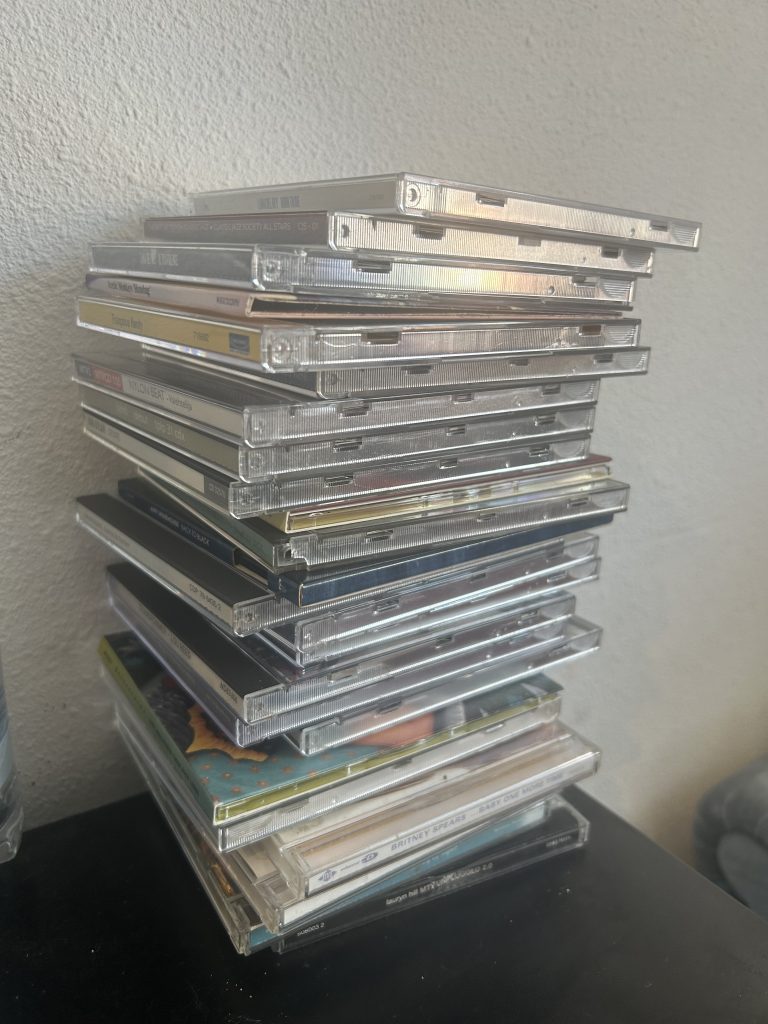Vinyl records and Polaroid cameras don’t remind me of the 70’s or the decades surrounding it. They remind me of the 2010s. Thanks to the hipster culture reigning in the 2010s, especially in the earlier years of the decade, these two vintage pieces of media have been engraved into the iconography of the 2010s. Just mention an Instax camera or show me your Beatles’ Abbey Road vinyl and I’ll immediately start seeing the world through a sepia filter and hallucinating fake moustaches.
The vinyl revival had its start during the peak of the reign of iPods, at a time when Spotify was taking its first steps as a streaming platform. This seemingly accidental rendezvous of a purposefully forgotten analog artifact and relatively young forms of completely digital music on the timeline of cultural history is everything but a coincidence. In a rapidly digitalizing culture, a desire for something tangible and nostalgic, perhaps also flawed and complicated, seems only natural. Our world was digitalizing at a fast pace at the beginning of the 2010s, and ten years later, the pace has just sped up.
Today, in the mid-2020s, vinyl sales are keeping on growing. Vinyl records are as popular as ever; however, they are not sharing the current popularity of physical recorded music formats alone. A rising trend I have noticed, especially among my friends from art school (read as 2020s version of hipsters), is the recently begun revival of CDs. Their popularity has not really surpassed the vinyls yet, but I would still feel confident enough to state that CDs will become the vinyls of 2020s.

As a side note, let’s revisit the earlier mentioned Polaroid cameras. If CDs are the possible vinyls of 2020’s, digital cameras definitely are the Polaroids of the decade. Although not completely forgotten, the hype surrounding Polaroids has reduced to merely a fraction of what it was around a decade ago. Instead of constantly encountering photos of hands holding Polaroid pictures on my Instagram feed, my friends’ Instagram stories nowadays often consist of horizontal digital camera photos with a harsh flash.

One of the main charms of digital photography during this revival is the harsh flash. It adds to the snapshot-like element that many of the digital camera enthusiasts seem to wish to embrace. With the development of smartphone cameras and increased accessibility of user-friendly editing software, personal photography has partially lost its amateurish charm. In the time of polished perfection, flaws and mistakes have become sought after. A similar driving force was impacting the vinyl boom of the 2010s, the occasional flaws caused by the vinyl records’ materiality give a fresh breath of tangibility in the era of high sound quality. Although humanity has for a long time aimed towards better quality in every aspect of products and media, even perfection can become boring when it is taken too far.
The resurfacing of CDs and digital cameras can be attributed to the current popularity of 2000s nostalgia and the current fashion trends stemming from the decade, just like the Polaroid revival of 2010s was heavily influenced by the popularity of the 80s during the decade. A longing for a “simpler” time has always been a major force spinning the 20-year (nowadays even faster) fashion cycle around. The pandemic of the early 2020s acted as an extreme push towards further digitalization in our society and culture, no wonder then, that the constantly running trend cycle currently has a major focus on technology. The current streaming fatigue, raising physical isolation, and the omnipresent online have caused a partial detachment of physicality in our culture. Therefore, it seems purely correlational that the public is looking for something tangible, permanent, and collectible, like CDs.
During the golden times of the hipsters, CDs were still partially relevant and seen as regular everyday objects. Entering the 2020s, the trend cycle has rolled to a time where CDs have become old enough and therefore nostalgic. Another aspect that makes CDs a sign of the times is their affordability. Though we are not officially experiencing a recession as of 2024, the global economy is facing difficult times. Right now, private households’ purchasing power is quite weak on average. As a result of the very scientific and professional questionnaire I made at a pub (I literally just chatted with my friends at the pub), one of the contributing factors among young people when it comes to purchasing CDs is their affordability. CDs are significantly cheaper than vinyl records, especially when bought from a second-hand store. They are also much smaller in size and therefore easier to store.
The audio system used to play CDs is also slightly more affordable than a vinyl player. For an average music listener, it is also easier to use. CDs are more familiar to the general public of 2020’s (it wasn’t that long ago when they were completely common), and therefore more accessible culturally. CDs might seem less pretentious than vinyl records, which do have a certain reputation (the legacy of hipster culture is still alive and breathing). The same can’t be said about digital cameras though. Although pulling any kind of physical camera from your bag at a party does not scream pretentiousness, it still whispers it (I should know, I’m talking about myself here).
As a consumer in a dopamine-addicted era, it feels quite difficult, and simultaneously quite refreshing, to listen to a complete album in one sitting from the beginning to the end as intended. After years of being able to curate playlists and pick individual songs to listen to, I have noticed that my old favorite songs have started to have a weaker impact on me. Algorithms and exaggerated curation have made us so dopamine-addicted that listening to a complete album without skipping requires patience. I’d recommend everyone to listen to songs they sort of like to be able to actually appreciate the ones they love. As a recovering dopamine addict, CDs have helped me a lot personally, maybe they could help you too.



Recent Comments